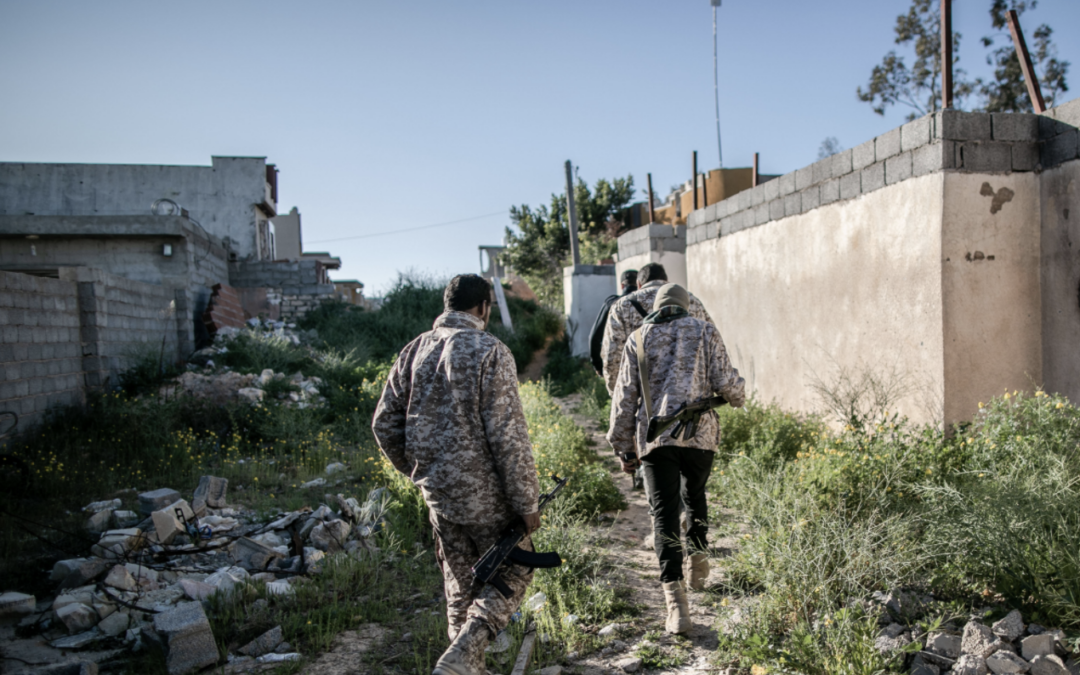
Jun 15, 2020 | News
Member States convening today for the resumption of the 43rd session of the UN Human Rights Council should support the establishment of an international investigative mechanism to document and preserve evidence of violations of international human rights law and international humanitarian law (IHL) committed in Libya, said the ICJ and Lawyers for Justice in Libya.
The escalation in armed conflict in recent months and ongoing impunity for an increasing number of violations and abuses being committed in Libya lend particular urgency to the establishment of a mechanism for a period of at least one year to investigate all gross human rights violations and abuses and serious violations of IHL, with a view to preserving evidence and holding perpetrators accountable.
“Horrific reports documenting the discovery of mass graves are the latest addition to a long line of well-established atrocities perpetrated across Libya,” said Kate Vigneswaran, Senior Legal Adviser at the ICJ’s Middle East and North Africa Programme. “Impunity for these crimes has proven only to prompt further violence and prolong the conflict.”
On 11 June 2020, the United National Support Mission to Libya reported the discovery of at least eight mass graves, located predominantly in Tarhuna, a town located southeast of Tripoli.
Though exhumations have only just commenced, initial reports by the Government of National Accord (GNA) indicate that they could contain hundreds of bodies, including of women and children.
Reports further indicate that the Libyan Arab Armed Forces (LAAF), and their foreign allies, have laid anti-personnel landmines and other booby-traps in buildings as they withdrew from Tripoli, leading to causalities including among civilians returning to their homes after long periods of displacement.
Reports of incidents involving “retributive crimes”, including the parading of corpses and looting of perceived opponents’ houses and public property, by GNA-affiliated armed groups have also surfaced.
“The systematic and ubiquitous nature of these violations reinforces the need for States to urgently push for mechanisms designed to address accountability and fight prevailing impunity. The establishment of an international investigative mechanism would not only pave the way towards obtaining justice for the victims and preserving evidence necessary for doing so, but also send a strong and unequivocal message that those who commit crimes will be held accountable,” said Marwa Mohamed, Head of Advocacy and Outreach at Lawyers for Justice in Libya.
An international investigative mechanism would bolster accountability efforts in the country, which have, thus far, been impeded by cycles of violence, weak and ineffective law enforcement agencies, the arbitrary exercise of policing and detention powers by armed groups and an inadequate legal framework for holding perpetrators of crimes under international law accountable.
States will vote on the resolution on Libya (UN Doc A/HRC/43/L.40) following the interactive dialogue on the High Commissioner for Human Rights’ Report on Libya on 18 June 2020.
The 43rd session of the Human Rights Council commenced in February 2020, but was suspended due to the COVID-19 pandemic.
Contact
Kate Vigneswaran, Senior Legal Adviser, ICJ Middle East and North Africa Programme, t: +31624894664 ; e: kate.vigneswaran(a)icj.org;
Background
A variety of armed groups have been engaged in recurrent waves of armed conflict since the 2011 uprising. These include the forces of the GNA, established in 2016, which is the internationally recognized State governing authority and is supported by armed groups acting either under their control or in alignment or alliance with it, and the LAAF, which is headed by Khalifa Haftar, who was endorsed by the House of Representatives after launching his military campaign in 2014, and is composed of a mixture of military units and armed groups.
The GNA generally has control over territory in the west, and the LAAF exercises a significant degree of control over territories in the east and parts of the south. In April 2019, the LAAF marched on Tripoli gaining further territorial control in parts of the west, but such gains have been reduced over recent weeks following the escalation in hostilities with the GNA and the LAAF’s consequent retreat.
Reports by UNSMIL and other international bodies and non-government organizations document the gross human rights violations and abuses and serious violations of IHL being committed by all parties to the conflicts in Libya. These include unlawful killings resulting from direct, indiscriminate and disproportionate attacks against persons not engaged in hostilities; attacks on civilian objects including medical facilities and equipment; torture and ill-treatment, including acts of sexual violence and the crime of rape; arbitrary arrests and detention; forced displacement; enforced disappearances; and extrajudicial killings. These violations and abuses have led to mass internal displacement, including of over 200,000 people since April 2019 from Tripoli and its outskirts.
Libya-Atrocities need investigation-News-2020-ARA (story in Arabic, PDF)
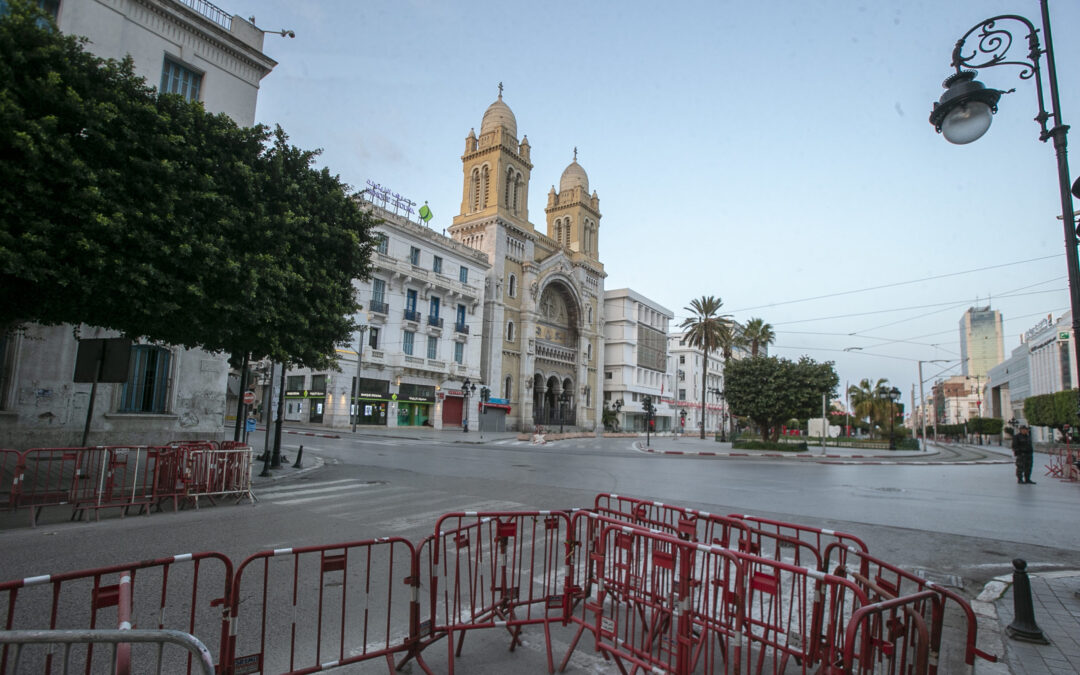
Jun 8, 2020
Tunisian authorities must protect the rights of the judiciary, the accused and other proceeding participants as judicial proceedings resume following COVID-19 lockdown, says the ICJ and Association des Magistrats Tunisiens in a briefing paper published today.
From 17 March 2020, the Tunisian President and executive authorities instituted exceptional measures to prevent and contain the spread of COVID-19, which included the suspension of judicial proceedings except for urgent matters, as well as work on all categories of cases by the prosecution, investigating judges and indictment chambers.
Subject to the Prime Minister’s national strategy, adopted on 2 May 2020, and a subsequent decision by the Minister of Justice, judicial proceedings are set to resume in full on 15 June 2020.
Prior to the adoption of a national strategy, the Prime Minister amended the Code of Criminal Procedure by Decree No. 2020-12 to permit remote hearings generally where the accused consents and, in situations of imminent danger or to prevent the contagion of a transmittable disease, irrespective of whether they consent.
Such developments raise concerns with respect to the modalities of proceedings and protection of all participants’ rights under international human rights law.
As Tunisia gradually lifts COVID-19 containment measures and judicial proceedings resume, Tunisian authorities must ensure that sufficient guarantees are put in place to protect the accused’s rights to liberty and a fair trial, victims’ right to an effective remedy and the judiciary and other proceeding participants’ rights to life, health and a safe and healthy working environment.
The briefing paper addresses these issues, submitting that:
- Tunisian authorities must adopt protective measures to ensure the rights to life, health and a safe and healthy working environment for all proceeding participants;
- Tunisian authorities should ensure remote hearings only occur where compliant with international law and standards governing criminal trials;
- Courts should remain available for urgent matters pending the adoption of protective measures; and
- Adjustments to the modalities of conducting trials should ensure the rights of the accused and victims are respected in Specialized Criminal Chambers’ proceedings.
Contact:
Kate Vigneswaran, Senior Legal Adviser, ICJ Middle East and North Africa Programme, t+31624894664 ; e: kate.vigneswaran(a)icj.org;
Anas Hmedi, President, Association des Magistrats Tunisiens: t +21698242625 ; e: anashmedi(a)gmail.com
Tunisia- judicial proceedings pandemic-Advocacy-briefing paper-2020-ENG (full briefing paper in PDF)
Tunisia- judicial proceedings pandemic-Advocacy-briefing paper-2020-ARA (full briefing paper, Arabic version, in PDF)
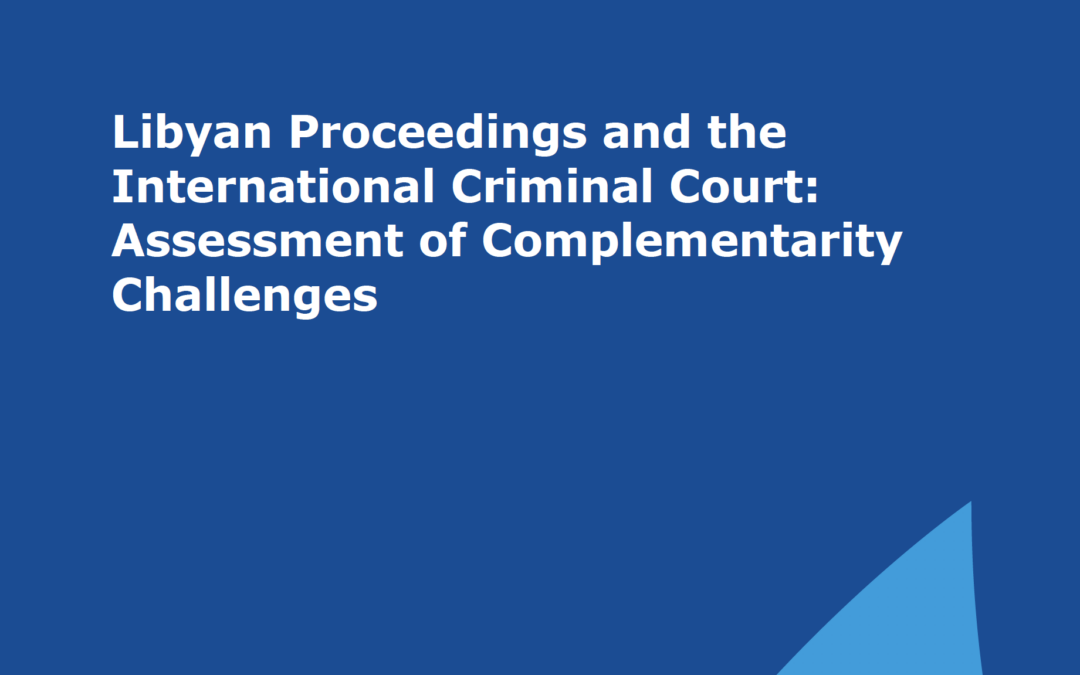
Apr 8, 2020
In a briefing paper analyzing complementarity challenges between Libyan proceedings and the International Criminal Court (ICC), the ICJ today called for full compliance with Libya’s obligations under international law to penalize, investigate and prosecute crimes under international law.
The ICJ calls for greater consideration to be given to fair trial violations and other shortcomings of the Libyan criminal justice system in the context of future cases and in any review of admissibility decisions before the ICC.
The briefing examines the standards applied by the ICC in determining the admissibility of the Libya-related cases, and assesses such standards in light of Libya’s obligations under international law and the findings of the ICJ’s report Accountability for Serious Crimes under International Law in Libya: An Assessment of the Criminal Justice System.
International fair trial standards are extensively violated in Libya, as testified by the case against 37 former Gadhafi officials, whose fair trial rights have been breached throughout the domestic proceedings.
Moreover, in prominent cases such as that concerning the 1996 massacre of 1200 prisoners in the Abu Salim prison, domestic courts failed to ensure accountability for crimes under international law by applying statutes of limitations.
The ICC has considered admissibility challenges brought by Libya in respect of the cases against Saif al-Islam Gadhafi (Muammar Gadhafi’s son) and Abdullah Al-Senussi (former head of the Military Intelligence), determining Gadhafi’s case admissible and Al-Senussi’s case inadmissible.
Warrants of arrest remain outstanding against Al-Tuhamy Mohamed Khaled (former head of the Libyan Internal Security Agency) and Mahmoud Mustafa Busayf Al-Werfalli (commander in the Al-Saiqa Brigade in the Libyan Arab Armed Forces), who are both at large.
“Libya’s criminal justice system is unable to ensure accountability for crimes under international law,” said Said Benarbia, the ICJ’s MENA Programme Director.
“To do so, courts should be able to operate free from fear or intimidation, and to apply laws that fully comply with Libya’s obligations under international law, including those on fair trial rights.”
The briefing highlights that, in addressing the admissibility of cases before the ICC, full consideration should be given to whether Libya fulfils its international obligations in terms of penalization of crimes under international law and guaranteeing that domestic proceedings are carried out in line with international fair trial standards.
“Until the Libyan proceedings are able to dispense justice consistent with international law and standards, impunity will continue to prevail in the country,” said Kate Vigneswaran, the ICJ’s MENA Programme Senior Legal Adviser.
“To contribute to dismantling such impunity, proceedings before the ICC should fully take into account and address fair trial violations and other obstacles that continue to impede the effective functioning of the Libyan proceedings.”
Contacts
Said Benarbia, Director of the ICJ Middle East and North Africa Programme, t: +41 22 979 3817; e: said.benarbia(a)icj.org
Kate Vigneswaran, ICJ Senior Legal Adviser, t: +31 62 489 4664, e: kate.vigneswaran(a)icj.org, twitter: @KateVigneswaran
Full English language briefing paper, in PDF: Libya-ICC assessment-Advocacy-Analysis Brief-2020-ENG
Full Arabic language briefing paper, in PDF: Libya-ICC assessment-Advocacy-Analysis brief-2020-ARA
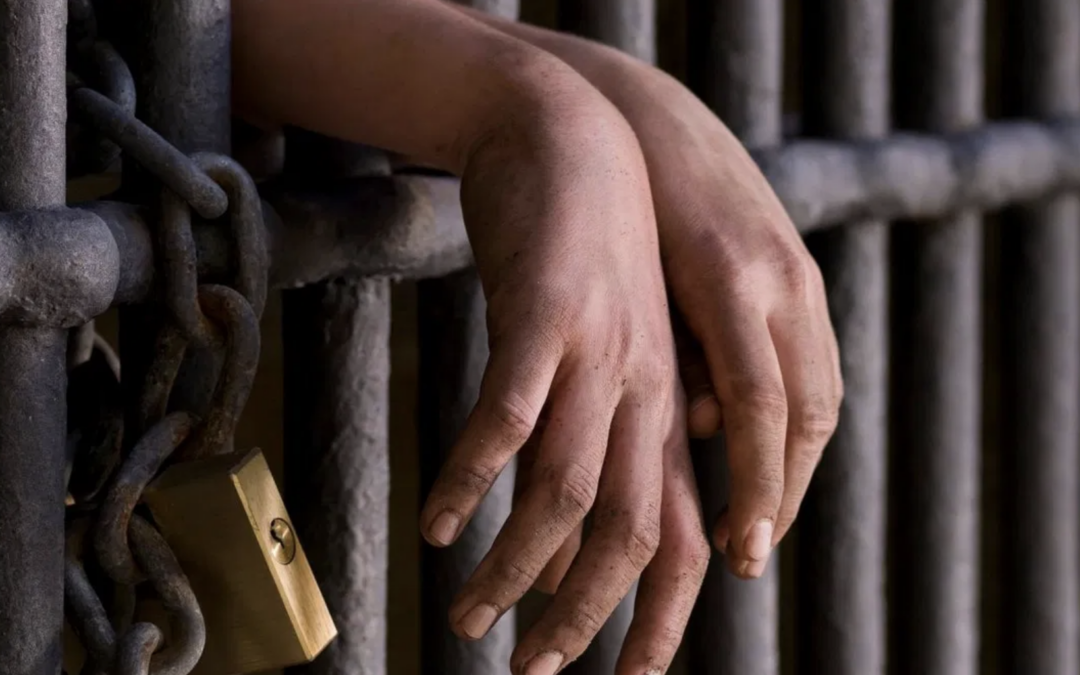
Mar 24, 2020 | Articles, Nouvelles
L’ICJ et 39 autres organisations ont exprimé aujourd’hui leur inquiétude par rapport à la situation de la population carcérale des pays du Moyen-Orient et d’Afrique du Nord face à la pandémie du coronavirus.
À la lumière de la pandémie de COVID-19 − qualifiée « d’urgence de santé publique de portée internationale » par l’Organisation mondiale de la santé (OMS) − nous, les organisations soussignées, exprimons notre vive inquiétude quant à la situation des détenu·e·s et des prisonnier.e.s dans la région du Moyen-Orient et de l’Afrique du Nord (MENA).
Si certains États de la région ont pris des mesures positives pour protéger la population dans son ensemble, la population carcérale reste particulièrement exposée à la propagation du virus.
Plusieurs pays de la région MENA ont déjà des systèmes de santé surchargés, certains considérablement affaiblis par des années de conflit armé. Dans ces pays, les prisons et les centres de détention sont souvent surpeuplés, insalubres et souffrent d’un manque de ressources ; en conséquence, les détenu·e·s se voient régulièrement refuser un accès adéquat aux soins médicaux. Ces difficultés ne font que s’aggraver en période d’urgence sanitaire, exposant les personnes privées de liberté à des risques accrus, tout en accentuant la pression sur des infrastructures de santé en prison déjà fragilisées. De plus, les personnes en détention interagissent régulièrement avec les gardien·ne·s de prison, les policier·e·s et les professionnels de la santé qui sont en contact avec le monde extérieur. Ne pas protéger les prisonnier·e·s et le personnel pénitentiaire contre le COVID-19 peut avoir des conséquences négatives pour le reste de la population.
En vertu du droit international relatif aux droits humains, tout individu a droit au meilleur état de santé physique et mentale susceptible d’être atteint. Les États ayant l’obligation de garantir la réalisation de ce droit sont tenus de veiller à ce que les détenu·e·s et les prisonnier·e·s soient traité·e·s humainement dans le respect de leur dignité et ne soient pas soumis·e·s à des traitements cruels, inhumains et dégradants. Les Règles Nelson Mandela exigent le respect du principe d’équivalence des soins, ce qui signifie que les personnes placées en milieu pénitentiaire doivent pouvoir bénéficier de soins de santé équivalents à ceux mis à disposition de la population civile générale. Cela ne change pas en période de pandémie.
Bien que des restrictions, notamment sur les visites en prison, puissent être imposées pour freiner la propagation de maladies infectieuses comme le COVID-19, elles doivent respecter les principes de proportionnalité et de transparence. Toute mesure, y compris les libérations de prisonnier·e·s, doit être prise conformément à des critères clairs et transparents, sans discrimination.
À la lumière de ce qui précède,
Nous appelons les gouvernements de la région MENA à:
(1) Rendre publiques les politiques et directives spécifiques à leur pays et, le cas échéant, les politiques et lignes directrices mises en place pour empêcher la propagation de COVID-19 dans les centres de détention, les prisons et les commissariats de police.
(2) Partager leurs plans d’interventions d’urgence et dispenser une formation spécifique au personnel et aux autorités compétentes afin de garantir un accès suffisant et durable aux soins de santé et à l’hygiène.
(3) Procéder à un examen approfondi de la population carcérale et, en conséquence, réduire leur population carcérale en ordonnant la libération immédiate:
- des détenu·e·s et prisonnier·e·s « à faible risque », y compris celles et ceux qui ont été condamné·e·s ou placé·e·s en détention préventive pour des infractions non violentes, les personnes placées en détention administrative ainsi que toute personne dont la détention continue ne peut être justifiée;
- des détenu·e·s et prisonnier·e·s particulièrement vulnérables au virus, y compris les personnes âgées et les personnes présentant un état médical sous-jacent grave, tel que des maladies pulmonaires et cardiaques, le diabète ou encore des maladies auto-immunes.
(4) Permettre aux personnes actuellement en liberté surveillée de s’acquitter de leurs obligations depuis leur domicile.
(5) Garantir que les personnes qui restent en détention:
(a) voient leur droit à la santé effectivement respecté en ayant pleinement accès aux soins médicaux nécessaires;
(b) aient accès au test du COVID-19 et à une assistance appropriée selon le principe d’équivalence des soins;
(c) disposent de moyens de communication et de possibilités d’accès au monde extérieur lorsque les visites en personne sont suspendues ;
(d) continuent de jouir de leur droit à une procédure régulière, y compris, sans s’y limiter, le droit de contester la légalité de leur détention, et leur droit de ne pas subir de retards qui rendraient leur détention arbitraire.
Nous appelons l’Organisation mondiale de la santé, le Comité international de la Croix-Rouge et les titulaires de mandat au titre des procédures spéciales du Conseil des droits de l’homme des Nations unies à publier des déclarations publiques et des directives mettant en évidence les recommandations et les meilleures pratiques à l’attention de tous les gouvernements en matière de détention et d’emprisonnement en période de pandémie.
Organisations signataires:
ACAT – France (Action by Christians Against Torture)
Access Now
Al Mezan Center for Human Rights
ALQST for Human Rights
Arab Network for Knowledge about Human rights (ANKH)
Arab Reform Initiative (ARI)
ARCI (Associazione Ricreativa Culturale Italiana)
Association of Detainees and Missing in Sednaya Prison
Association for Freedom of Thought and Expression (AFTE)
Bahrain Centre for Human Rights
Bahrain Transparency Society
Bar Human Rights Committee of England and Wales
CIVICUS
Committee for Justice
Democratic Transition and Human Rights support (DAAM Center)
Digital Citizenship Organisation
DIGNITY – Danish Institute Against Torture
Egyptian Commission for Rights and Freedoms
Egyptian Human Rights Forum
El Nadim Center
HaMoked: Center for the Defence of the Individual
Human Rights First
Initiative franco-égyptienne pour les droits les libertés (IFEDL)
International Commission of Jurists
International Federation for Human Rights (FIDH)
Kuwaiti Transparency Society
Lebanese Centre For Human Rights
medico international e.V., Germany
MENA Rights Group
Mwatana for Human Rights
Physicians for Human Rights – Israel
Project on Middle East Democracy
Reprieve
Robert F. Kennedy Human Rights
Syrian Center For Legal Studies and Researches
Syrian Network for Human Rights
Tahrir Institute for Middle East Policy (TIMEP)
UMAM Documentation & Research (MENA Prison Forum)
Women’s March Global
World Organisation Against Torture
PDF: MENA-Covid-19-Prisons-Advocacy-2020-FRA
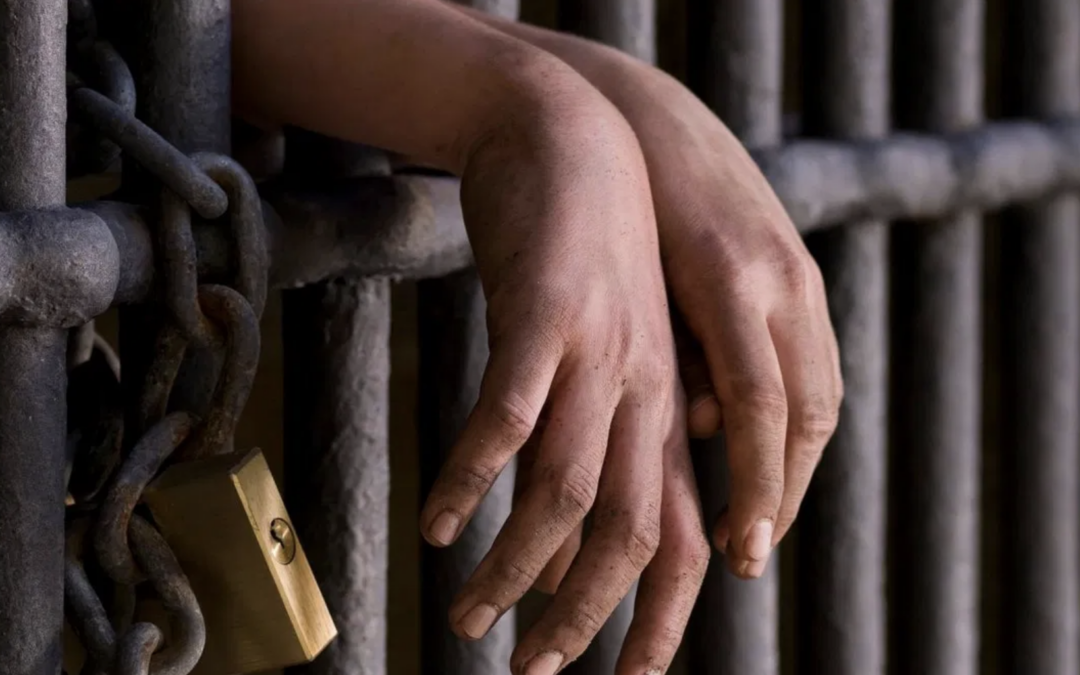
Mar 24, 2020 | Advocacy, Non-legal submissions
In light of the global COVID-19 pandemic outbreak—qualified as a Public Health Emergency of International Concern by the World Health Organization (WHO)—the ICJ, together with 39 other organizations, today expressed grave concern over the situation of detainees and prisoners across the Middle East and North Africa (MENA) and called on governments in the MENA region to:
- Make known to the public their country-specific, and if relevant, facility-specific policies and guidelines in place to prevent the spread of COVID-19 in detention centers, prisons, and police stations.
- Share their emergency preparedness plans and provide specific training to relevant staff and authorities to ensure sufficient and sustained access to healthcare and hygiene provision.
- Conduct a thorough review of the prison population and in turn, reduce their prison populations by ordering the immediate release of:
-
- “Low-risk” detainees and prisoners, including those convicted or held in pretrial detention (remand) for nonviolent offences; administrative detainees; and those whose continued detention is not justified;
- Detainees and prisoners particularly vulnerable to the virus, including the elderly, and individuals with serious underlying conditions including lung disease, heart disease, diabetes, and autoimmune diseases.
- Allow individuals serving probation and probationary measures to fulfill their probation and probationary measures in their homes.
- Guarantee that individuals who remain in detention:
-
- Have their right to health effectively upheld by being granted full access to medical care as required;
- Access COVID-19 testing and treatment on a standard equal to that governing the general population;
- Are provided with means of communication and opportunities to access the outside world when in-person visits are suspended;
- Continue to enjoy their right to due process, including but not limited to the right to challenge the lawfulness of their detention, and their right not to experience delays that would render their detention arbitrary.
Full English language joint statement (in PDF): MENA-Covid-19-Prisons-Advocacy-2020-ENG
Full Arabic language joint statement (in PDF): MENA-Covid-19-Prisons-Advocacy-2020-ARA









